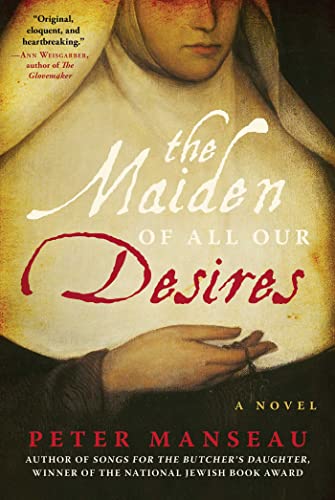4 Stars
This novel caught my attention because it was recommended to fans of Maggie O’Farrell and Emma Donoghue, two writers I really like.
The setting is an isolated convent in 14th century England about 20 years after the Black Death. The duration is 24 hours during which a blizzard rages. A bishop is launching an investigation because of rumours of heresy. Mother John, the abbess, does indeed supplement canonical readings with passages from the Book of Ursula, the teachings of the charismatic founder of the order which are not in line with patriarchal dogma. Father Francis, the resident priest, was exiled to the remote convent as a punishment, and his relationship with the nuns is acrimonious so he cannot be relied on to defend them.
Both the founder and the current abbess have feminist leanings. Mother Ursula founded the convent to create a place where women would not be “’at the mercy of cruel men.’” When seeking permission from the bishop to establish a convent, she commented that she did not want to join one of the existing convents because they “’reek of excess and sin’” and she’d “’sooner sprout flesh and seek Holy Orders than join such a house.’” Her teachings, which are read daily by Mother John, are “meditations on the value of the nuns’ labor, inquiries into the role of women in the salvation of mankind, and an idiosyncratic accounting of their lives.” Mother John herself joined the convent because she wanted to make a choice about her life; when her father arranged a marriage for her, she understood that she would be nothing more than a “’breeding sow’” and so said, "’I would don church clothes every morning for the remainder of my days before I would wear the skin of a man of your choosing.’”
If there is a villain in the narrative, that is Father Francis. Though a priest, he soon earns a reputation as “’the choice confessor of widows’”: “His clerical robes had provided fine cover for . . . liaisons. The older women of the city spoke openly of his skill and generosity in the granting of absolution.” Once exiled to the convent, he shows little respect for the nuns. He tires of their “nunnish quibbling” and focuses on woodcarving rather than the spiritual lives of the nuns. When giving one sister her penance, he puckers his lips and then drops “a yellow-green glob into the center of the purple wine. ‘Your penance, Sister, . . . Drink. Then go and sin no more.’” He bears responsibility for what happens to Maureen but treats her with anything but Christian charity. He is wracked by guilt for “innocence destroyed because of his failure; goodness defiled because of his sin” but I wondered whether he’d ever cease being selfish and seek forgiveness directly from those he wronged.
The perspective of various characters is given, most often that of Mother Ursula, Mother John, Father Francis, and Sister Magdalene who was born in the convent and has lived her entire life there. Flashbacks reveal their backgrounds and explain the reasons for their choices and actions. The backstories of Magdalene and the bishop’s clerk clearly suggest who they are long before their identities are confirmed at the end.
There are wonderful touches of humour. Mother John goes to the necessarium before proceeding to the church “lest the necessarium become necessary in the midst of their prayers.” During his ordination exam, while reciting the Song of Solomon, Francis thought about a woman, so his instructors “could see his passion for the text even through his voluminous cassock.” Though he has chosen the priesthood, and abandoned his family’s woodcarving tools, Francis says, “’My vocation has not permanently sheathed my blade,’” an apt description from a man who quickly forgets his vows to minister to the physical needs of widows.
Though set in the distant past, the book has echoes of the present. The references to a deadly disease, the building of a wall to keep out undesirables, patriarchal authority, and the perceived inferiority of women all had me thinking about modern parallels. Perhaps the ending also has a message for us: “Search now for a blessing even in the wreckage . . . you are given an empty expanse in every direction. What will you write on this new blank page of creation?”
This is a thought-provoking book which explores how lives are shaped both by history and by personal choice.

No comments:
Post a Comment